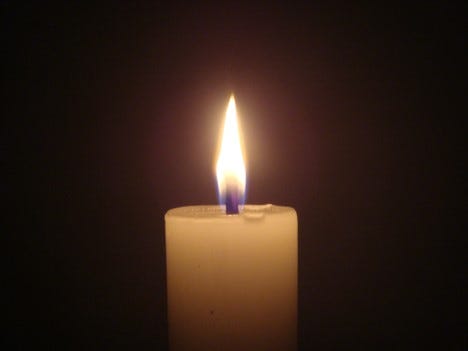Yes, this matters
The stifled voices must be heard. At some point, the hero worship must end and the respect for courage beyond measure must begin.
Truth be told, I hate February 18-22. Every year, the same photo snapped by Wittenstein. Every year, homage to Sophie Scholl and sometimes her brother Hans, and sometimes less often, someone remembers Christoph Probst.
And then it stops. It’s as if there were no massive spectacle on April 19, 1943, when seventeen defendants faced a horrific trial that made February 22 look like moot court. Much less recognition of the trial on July 13, 1943, when four men stood before not-Freisler, their deaths all but certain, and lived to tell the tale. Nor are there any poignant photos of Hans Leipelt in January 1945, or the crew in Hamburg from April-May 1945.
No, the remembrance seems to stop dead in its tracks after February 22.
More’s the pity. Because those subsequent interrogations, those subsequent trials, those subsequent executions (and surprising acquittals), those subsequent prison sentences? Those matter. Only when we pay attention to all that came after February 22, do we understand the full scope of White Rose resistance, who the friends were, how they functioned. When the story stops after the first trial and executions, we lose everything.
Everything. We miss laughter, indignation, inside jokes, outwitting Gestapo agents, anger, backlash, disappointment. We miss the immense extent of their bravery, words spoken to power in open court, words that infuriated The Powers That Be for their references to Fichte, to German honor (the real kind), to the rule of law, to justice.
If you’re satisfied with the version that puts Sophie on a pedestal and ignores the larger picture, fine. But I will not be satisfied with that version. I want the story that shows the Sophie who has not showered in weeks, the Christl whose depression keeps him in bed, the Gerhard who cannot understand why Sophie is so rude to him, the Wilhelm Geyer who singlehandedly breaks up a Nazi rally, the Lilo who is courageously afraid or fearfully courageous, the Susanne who is valedictorian of her Gymnasium but who falls in with a rare Lutheran pastor who won’t let her conscience die, the Hans Hirzel who takes LSD to escape, the Schurik who hangs out in bars with the Others and who takes food to forced laborers, the Willi who marches with 11 friends bearing a Christian flag in a sea of 100,000 Hitler Youth, the Eugen who helps his Jewish wife’s family leave Germany, the Jenny who stays with Eugen, the Harald who is more papal than the pope himself and never stops fighting, the Traute who brings actual resistance from Hamburg to Munich (not the other way around), the Käthe who translates works for the NSDAP until she understands, the Gisela who betrayed them all and made atonement after the war. And many, many more.
I cannot do this alone. I need scholars, readers, truth-seekers who are willing to join me. This has long been a family endeavor - we put over $800,000 into this work over almost thirty years - and I’m the only person left. I’m looking for a university that will become home to our archives and will carry on this work. Because until Scholl archives are open, the story remains incomplete.
I am counting on the paid subscribers to this newsletter to help me in the interim. I need your counsel, and I want your collaboration. If you have read this far, you’re about to reach the paywall. If you’re currently a free subscriber, and you want to see what a paid subscription would look like, contact us. I’ll make sure you receive a 30-day trial “paid” subscription so you can decide before you commit.
In the meantime, please understand that every time the watered-down story is told and retold, that telling dishonors the friends who gave everything, and then some.
Keep reading with a 7-day free trial
Subscribe to Why This Matters to keep reading this post and get 7 days of free access to the full post archives.




